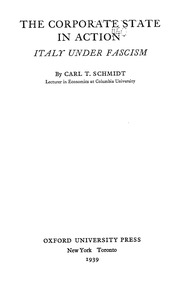Today marks the centennial of the March of Rome. The Fascists approached the Italian government, and the ruling class’s monarchy appointed them.
Even though we have more than a century of history behind us, few people today understand Fascism. Indeed, I don’t think that any individual is capable of fully understanding the true extent of the phenomenon’s devastation; none of us was alive back then, and we couldn’t have possibly been in every place at once. What we can establish, nevertheless, is the basics: Fascism was more than a strict and unfair police state. Fascism was created by the petite‐bourgeoisie, and was how the ruling class secured capital, annihilated proletarian organizations, and subjugated the lower classes better than the preceding liberal régime ever could. Fascism was capitalism. In decay.
In order to better understand Fascism, we cannot be content looking simply at how it devastated us. We also need to consider who benefited from it, and how. When we understand that, its survival and perpetuation become comprehensible to us, and we can better understand what we’ll do to end neofascism.
Many of us shall be tempted to blame other leftists (e.g. the Socialist Party) for Fascism. We should, of course, admit and learn from our mistakes, but there are extents where self‐blame becomes not only unreasonable, but overlooks (unwittingly or not) the crucial importance that the ruling class holds in history. It was not those few without political power who appointed the Fascists, but the many with it. For this conclusion, The Corporate State in Action remains an invaluable resource:
The rising force of Fascism was based on the money of propertied folk and the manpower and fervor of middle‐class and proletarian elements. More important, however: it throve on the toleration and active aid of bureaucrats, army officers, judges, and policemen. Government officials helped prepare the ground for the Blackshirt punitive squads, furnished them with arms, and gave them freedom of action. The official historian of Fascism, Volpe, put it mildly when he wrote: ‘Fascism did not lack a certain indulgence from above.’ Without help from the civil and military bureaucracy Fascism could not have won power.
[…]
The police and military allowed the Fascists to occupy police headquarters, railway stations, telegraph offices, and other public buildings in Northern cities. Armed bands of Blackshirts, estimated by various observers at anything from 50,000 to 300,000 began to converge on Rome. On the morning of October when a few thousand of the marchers had nearly reached the city, the cabinet decided to ask the King to decree a state of martial law. Resistance by even a small force of trained soldiers might quickly have dispelled the Blackshirts. ‘After five minutes of gunfire,’ said General Badoglio, ‘Fascism will completely collapse.’
But the King refused to sign the proclamation on the ground that it would precipitate civil war. He knew that certain high army officers were supporting the Fascists and was informed, perhaps incorrectly, that the army could no longer be trusted to fight against them. Also he heard rumors that the Fascists were prepared to place his cousin, the Duke of Aosta, on the throne. Finally, was he really averse to a Fascist victory?
On 29 October Mussolini, who had been waiting in Milan, was called to form a ministry. He rode into Rome, not on horseback, but in a wagon‐lit. The first act of the Blackshirt revolution was ended.


